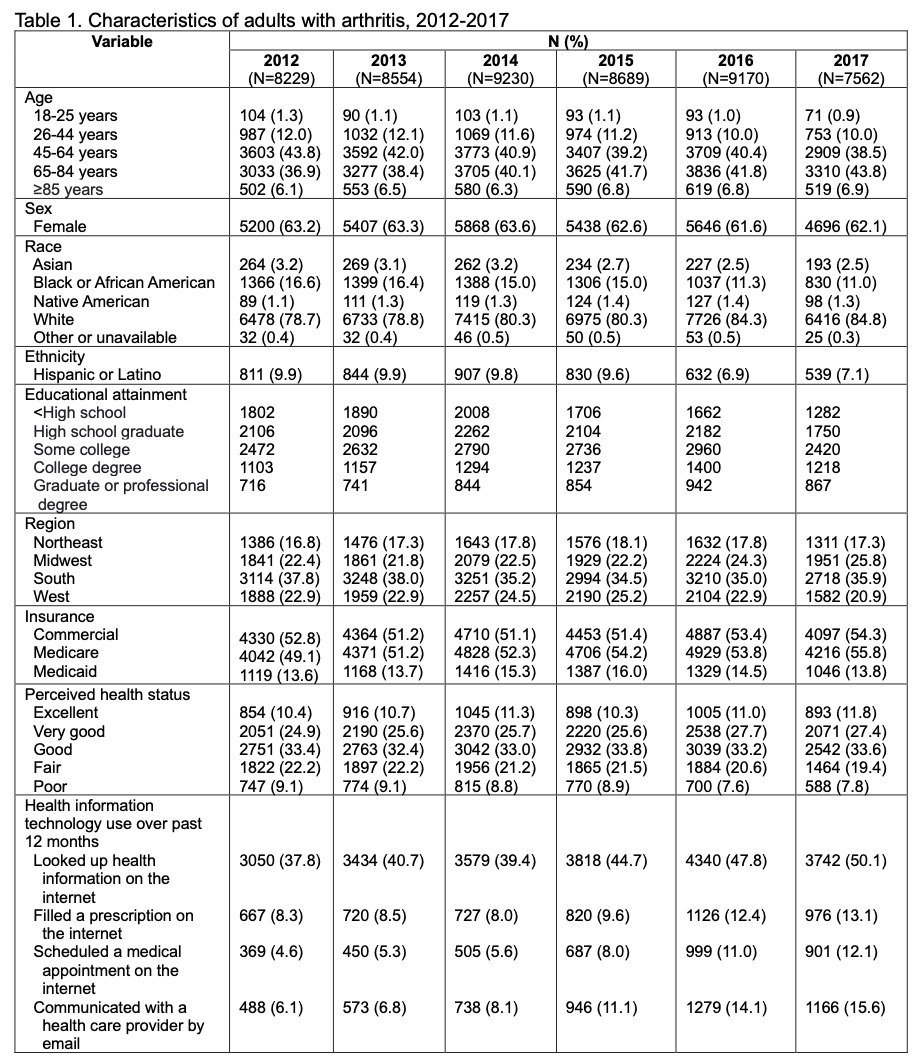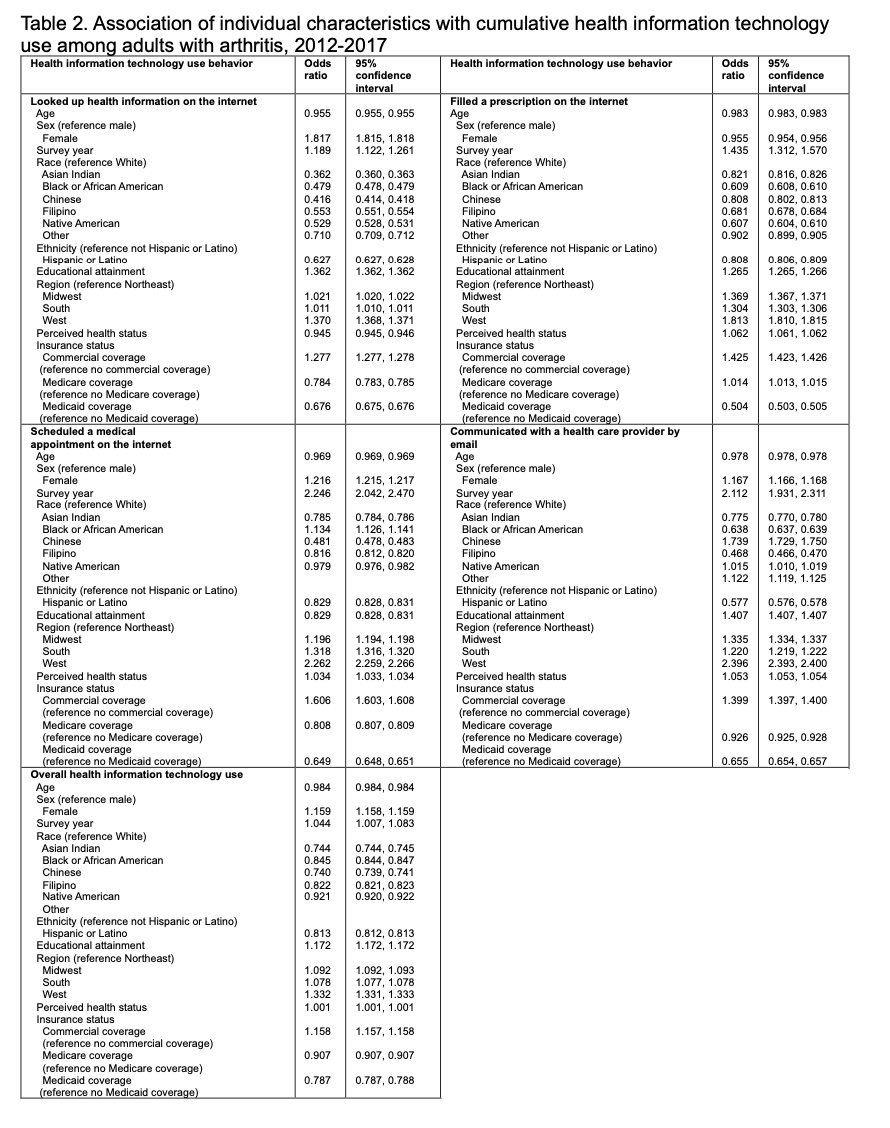Session Information
Session Type: Poster Session A
Session Time: 10:30AM-12:30PM
Background/Purpose: Health information technology (HIT) use has been associated with numerous benefits including improvements in quality of care and patient safety. Factors associated with HIT use in US adults with arthritis are not well understood.
Methods: We analyzed serial cross-sectional data (2012-2017) from the National Health Interview Survey collected from adults ≥18 years of age with arthritis, defined by a single self-report item reflecting arthritis, rheumatoid arthritis, gout, lupus, and fibromyalgia. Using descriptive statistics, we evaluated self-reported sample characteristics and prevalence of computer use over the past 12 months across 4 domains: to (1) “look up health information on the internet”; (2) “fill a prescription online”; (3) “schedule a web-based appointment with a health care provider”; and (4) “communicate with a health care provider by email.” Using logistic regression, we also analyzed the association of individual characteristics and HIT use.
Results: Over time about 38-50% of adults with arthritis reported looking up health information on the internet (Table 1). HIT use behaviors were significantly associated with multiple sociodemographic factors, as well as perceived health status (Table 2). Older (versus younger) respondents were less likely to engage in HIT use across the 4 individual domains and overall (odds ratio [OR] 0.984, 95% confidence interval [CI] 0.984, 0.984 for overall HIT use). Female (versus male) respondents were less likely to fill a prescription electronically (OR 0.955, 95% CI 0.955, 0.956), but otherwise more likely to engage in HIT use. HIT use increased over time across all 4 domains and overall (OR 1.044, 95% CI 1.007, 1.083 for overall HIT use). Lower (versus higher) perceived health status was associated with greater use of HIT to look up health information on the internet (OR 0.945, 95% CI 0.945, 0.946); in contrast, higher (versus lower) perceived health status was associated with greater use of other HIT applications.
Conclusion: Among adults with arthritis, using the internet to obtain health information occurs commonly. HIT use varies by individual characteristics within this population and has increased over time. Further evaluation of HIT use patterns in recent years is needed to understand evolving trends and enhance uptake of patient-centered HIT.
To cite this abstract in AMA style:
Lieber S, Moxley J, Reid M, Czaja S. Factors Associated with Health Information Technology Use Among United States Adults with Arthritis from 2012-2017: Analysis of the National Health Interview Survey [abstract]. Arthritis Rheumatol. 2024; 76 (suppl 9). https://acrabstracts.org/abstract/factors-associated-with-health-information-technology-use-among-united-states-adults-with-arthritis-from-2012-2017-analysis-of-the-national-health-interview-survey/. Accessed .« Back to ACR Convergence 2024
ACR Meeting Abstracts - https://acrabstracts.org/abstract/factors-associated-with-health-information-technology-use-among-united-states-adults-with-arthritis-from-2012-2017-analysis-of-the-national-health-interview-survey/


